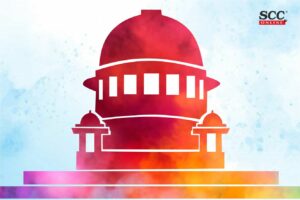Supreme Court: The bench of Navin Sinha and Krishan Murari, JJ has held that there cannot be any rigid standard or yardstick for acceptance or rejection of a dying declaration and whether or not it will be admissible in evidence will depend upon the fact of each case.
The Court was hearing a case dating back to 1991 where a married woman succumbed to 95% burn injuries. The case became complicated as there was no eye-witness account and the prosecution had based it’s case of circumstantial evidence involving the dying declaration of the deceased. The husband and the sister-in-law of the deceased were acquitted as the dying declaration did not inspire confidence. “It vacillated between blaming the husband and the sister¬in-law, coupled with the absence of any certificate by the Doctor that the deceased was in a fit state of mind when she made the dying declaration.”
Explaining the law relating to admissibility of dying declaration under Section 32 of the Evidence Act, 1872, the Court held that it alone can also form the basis for conviction if it has been made voluntarily and inspires confidence. However,
“If there are contradictions, variations, creating doubts about its truthfulness, affecting its veracity and credibility or if the dying declaration is suspect, or the accused is able to create a doubt not only with regard to the dying declaration but also with regard to the nature and manner of death, the benefit of doubt shall have to be given to the accused. Therefore, much shall depend on the facts of a case.”
Applying this principle the Court took note of the following facts at hand:
- The statement of the deceased was based on hearsay evidence that the deceased was set on fire by her husband. There was no reference to sister-in-law in this statement and neither had she said anything about dowry demand.
- The next statement of the deceased blamed the sister-in-law. This statement was not signed by anybody and the Doctor who recorded the statement has not been examined. Merely because his signature has been identified by the record clerk of the hospital cannot establish the correctness of its contents.
- The third statement of the deceased was recorded by the Assistant SubInspector blaming sister-in-law alone without any allegation against the husband, and on the contrary states that she was brought to the hospital by her husband. “It again does not disclose any dowry demand.”
- Assistant SubInspector who recorded the dying declaration does not state that the deceased was in a fit state of mind to make the statement. He states that the Doctor had certified fitness of mind of the deceased, when the dying declaration itself contains no such statement. In cross examination he acknowledges that the fitness of the deceased was certified by a resident junior doctor separately but whose signature and endorsement is not available on the dying declaration. The record clerk of the hospital also made a statement that the Doctor had not signed in his presence and that at times doctors would come and put their signatures in the record room.
In such facts and circumstances, considering that the statements of the deceased have vacillated, the Court noticed that there is no evidence about the fitness of mind of the deceased to make the dying declaration including the presence of the Doctor, the veracity and truthfulness of the dying declaration remains suspect. Hence,
“it would not be safe to simply reject the probable defence of suicide, to reverse the acquittal and convict the respondents.”
[Naresh Kumar v. Kalawati, CRIMINAL APPEAL NO. 35 OF 2013, decided on 25.03.2021]
*Judgment by Justice Navin Sinha
Appearances before the Court by
For appellant: Advocate Rajendra Singhvi
For respondents: Senior Advocate Ramesh Gupta

